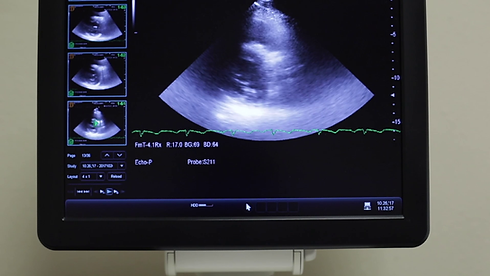
preventative screening

take control
Preventative screening gives you the power to address current risks and foresee potential risks to your health.
Many factors increase your risk for heart disease. 47% of Americans have at least 1 of 3 risk factors for heart disease: high blood pressure, high cholesterol, and smoking.
Our screening and heart specialist expertise inform you of which heart diseases are on the horizon and how to prevent them.
The
four heart check
Through ultrasound (sound waves) we see how well your blood flows through the arteries in your neck.
Evaluates risk of:
The electrocardiogram (ECG/EKG) uses sensors lightly attached to your chest and torso to measure your heartbeat.
Evaluates risk of:
We use ultrasound to see if there is an aneurysm (enlargement) in the aorta, the main artery that deliveries oxygen rich blood from your heart to the rest of your body.
Evaluates risk of:
This check may start with an Ankle-Brachial Index, which compares blood pressure in your arm and ankle with ultrasound to see how well blood is flowing.
Further testing may reveal which specific arteries in your body are at risk for Peripheral Artery Disease.
Evaluates risk of:
We do preventative screening through four rounds of exams. They are the:
-
Carotid Artery Check
-
Heart Rhythm Check
-
Abdominal Aortic Aneurysm Check
-
Peripheral Artery Disease Check.

The information contained on Sanjoaquincardiology.org is not intended, and should not be relied upon, as a substitute for medical advice or treatment.
It is very important that individuals with specific medical problems or questions to consult with our cardiology specialists.

